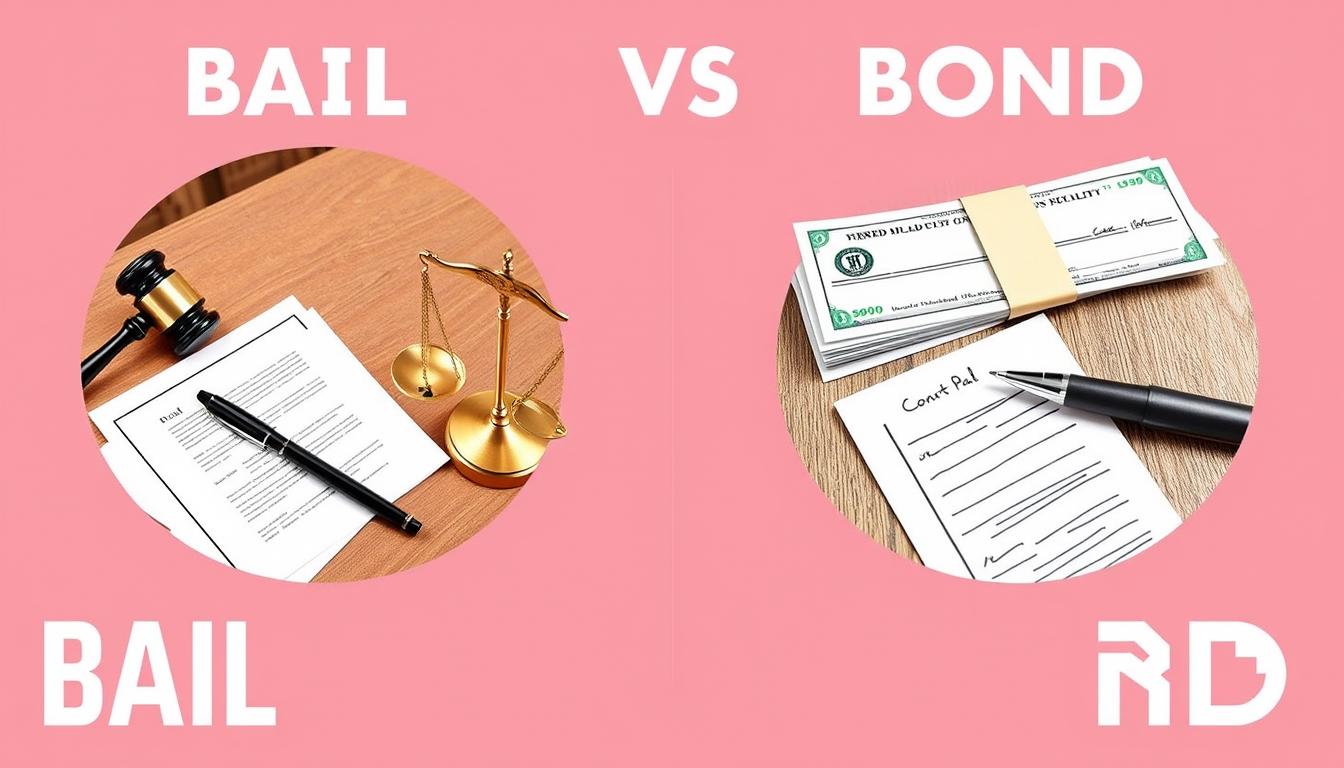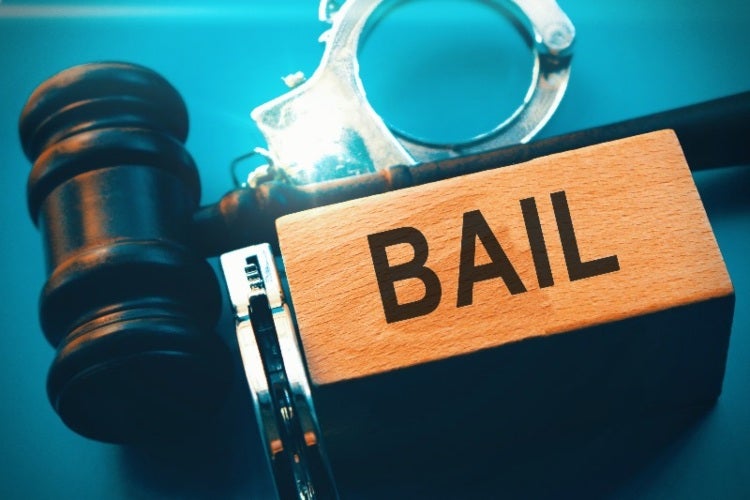Comprehending the Process of Protecting a Bail Bond: What You Need to Know
Protecting a bail bond can be a complicated process. It entails understanding various aspects, from the kinds of bonds available to the linked prices. Individuals commonly ignore essential information that can affect their situation. The actions to acquire a bail bond need careful factor to consider and understanding of duties. As the procedure unfolds, essential decisions should be made that might impact the result substantially. What should one prepare for when traversing this tough landscape?
What Is a Bail Bond?
A bail bond is an economic arrangement that allows an apprehended individual to be released from wardship while awaiting trial. This setup involves a 3rd party, generally a bondsman, who ensures the court that the individual will certainly return for their scheduled court looks. In exchange for this solution, the bondsman generally charges a non-refundable charge, usually a percent of the complete Bail quantity.
Bail bonds offer an important function in the lawful system, supplying a device for offenders to keep their flexibility during the pre-trial phase. This can help them plan for their defense much more effectively. The Bail quantity is established by the court based upon various elements, including the seriousness of the infraction, the offender's criminal background, and the threat of flight. Eventually, a bail bond stands for a dedication to promote lawful responsibilities while allowing individuals the chance to continue their day-to-days live till their court day.
How Bail Bonds Work
Bail bonds operate via a simple procedure that includes a number of crucial actions. A defendant or their representative get in touches with a bail bond representative after an arrest. The agent analyzes the circumstance, including the Bail quantity established by the defendant and the court's background. Once a choice is made, the agent generally needs a non-refundable charge, generally a percent of the total Bail quantity, often varying from 10% to 15%.
After the charge is paid, the agent safeguards the Bail by authorizing an agreement with the court, ensuring that the defendant appears for all scheduled court dates. If the defendant fails to appear, the bail bond agent is liable for the full Bail amount, leading the representative to choose the accused. Throughout this procedure, the bail bond agent plays a necessary function in assisting in the release of the offender while handling the linked monetary risks.
Kinds of Bail Bonds
Comprehending the various kinds of Bail bonds is essential for offenders and their family members as they navigate the legal system. There are numerous typical types of Bail bonds offered, each offering a certain purpose.
One of the most widespread is the surety bond, which entails a Bail bondsman guaranteeing the complete Bail amount for a cost. One more kind is the money bond, where the defendant or their family members pays the full Bail amount in cash money directly to the court.
Residential property bonds enable individuals to use real estate as security for the Bail amount. Additionally, government bonds are certain to federal cases, frequently needing a greater costs and much more rigid problems.
Finally, immigration bonds are used in situations concerning migration offenses. Each kind of bond has distinct treatments and effects, making it vital for those entailed to comprehend their choices extensively.
The Costs Associated With Protecting a Bail Bond
Securing a bail bond requires different costs that can significantly impact an offender's funds. The primary expense is the costs, commonly varying from 10% to 15% of the total Bail amount set by the court. This premium is non-refundable, no matter the situation outcome, standing for the bail bond agent's fee for their solutions. Extra costs might include administrative costs, which some agents enforce for handling documentation, and collateral requirements, where the offender may require to supply possessions to protect the bond. In situations involving higher Bail quantities, the need for collateral becomes much more obvious. bail bonds. Accuseds ought to be conscious of potential costs related to missed court days, which can lead to additional financial charges. Recognizing these costs is essential for offenders and their family members, as they can substantially influence the monetary worry related to protecting a bail bond
The Refine of Obtaining a Bail Bond
The procedure of obtaining a bail bond involves a series of structured steps that begin with the entry of an application. Candidates must likewise take into consideration various settlement and collateral options that may be called for by the bail bond agency. Recognizing these components is essential for steering via the bail bond system successfully.
Application Submission Steps
When individuals are knowledgeable, steering the application submission steps for getting a bail bond can be straightforward. The initial step entails picking a trusted bail bond company, which commonly requires research study and suggestions. As soon as a firm is chosen, the candidate needs to finish a bail bond application, supplying crucial information such as the offender's information, fees, and Bail quantity. Next, the candidate might require to existing identification and any kind of relevant documentation to support the application. After sending the application, the bail bond business will assess the details and analyze the threat entailed. An agent will lay out the terms and problems before settling the contract if authorized. This procedure, while methodical, can differ somewhat depending upon the territory and the website Bail bond firm.

Payment and Collateral Options
When obtaining a bail bond, understanding repayment and security options is important, as these variables can considerably influence the overall cost and terms of the arrangement. Normally, bail bond firms call for a non-refundable charge, generally a percent of the complete Bail quantity, which works as their profit. Some firms may use flexible layaway plan, enabling customers to pay in installations. Additionally, collateral can be needed to protect the bond, which may include possessions like property, cars, or various other valuables. The type and worth of security can influence the bond's approval and terms. Customers need to thoroughly assess their monetary situation and options to guarantee they pick a service that lines up with their budget plan and conditions.
Duties of the Indemnitor
Steering via the intricacies of Bail bonds calls for a clear understanding of the obligations of the indemnitor. The indemnitor, usually a family member or close friend of the defendant, plays a substantial duty in the Bail process. This private consents to presume financial obligation, making sure that the Bail amount is paid if the accused stops working to show up in court. It is very important for the indemnitor to maintain interaction with the bail bond representative throughout the procedure, offering any kind of necessary details and updates relating to the offender's situation.
In addition, the indemnitor must safeguard security, which may include residential or commercial property or valuables, to back the bail bond. This security protects the bail bond business against prospective losses - bail bonds. Must the accused fail to abide by court requireds, the indemnitor encounters the danger of losing their collateral and may be held responsible for the whole Bail amount. Consequently, understanding these duties is crucial for the indemnitor's monetary stability

Common Misconceptions Concerning Bail Bonds
Lots of individuals nurture mistaken beliefs regarding Bail bonds, which can complicate their understanding of the Bail procedure. One widespread myth is that Bail bonds are a type of repayment that assures an offender's launch. In truth, they are a guarantee to the court that the accused will certainly stand for their arranged hearings. Another common belief is that just wealthy people can pay for Bail. However, Bail bondsmen typically bill a percent of the overall Bail quantity, making it easily accessible to a broader variety of individuals. In addition, some people assume that Bail is refundable. While the costs paid to the bondsman is not refundable, the Bail amount itself might be returned upon the conclusion of the instance, provided the offender satisfies all court requirements. Dispelling these misconceptions is essential for individuals passing through the complexities of the Bail system and ensuring they make informed decisions.
Frequently Asked Concerns
Can I Secure a Bail Bond for A Person in Another State?
Safeguarding a bail bond for someone in an additional state is possible, however it typically requires dealing with a Bail bondsman certified because state - bail bonds. Each territory has specific laws that have to be followed during this procedure
What Happens if the Offender Skips Bail?
A warrant is commonly issued for their arrest if a defendant avoids Bail. The Bail bondsman may also go after recuperation efforts, which could involve employing fugitive hunter to capture the person and find.
Are Bail Bondsmen Controlled by the Government?
Bail bail bondsmans are certainly managed by federal government authorities. Rules differ by state, however they usually call for licensing, adherence to monetary practices, and conformity with legislations to assure reasonable therapy of offenders and their family members.
Can I Make Use Of Security Besides Cash?
Collateral other than cash money can typically be used for Bail bonds, relying on the Bail bondsman's plans. Usual options include home, cars, or other valuable possessions, which must normally be assessed and agreed upon.
What Is the Role of a Co-Signer in a Bail Bond?
The role of a co-signer in a bail bond is to guarantee settlement if the offender falls short to show up in court. This individual approves economic obligation, guaranteeing that the bail bond agreement is supported and enforceable.
If the offender fails to appear, the bail bond representative is accountable for the complete Bail amount, leading the agent to look for out the accused. When a firm is picked, the applicant must finish a bail bond application, giving necessary info such as the accused's details, charges, and Bail amount. Typically, bail bond companies need a non-refundable charge, generally a percentage of the overall Bail amount, which offers as their profit. Numerous people harbor false impressions about Bail bonds, which can complicate their understanding of the Bail process. Collateral various other than money can often be used for Bail bonds, depending on the Bail bondsman's plans.